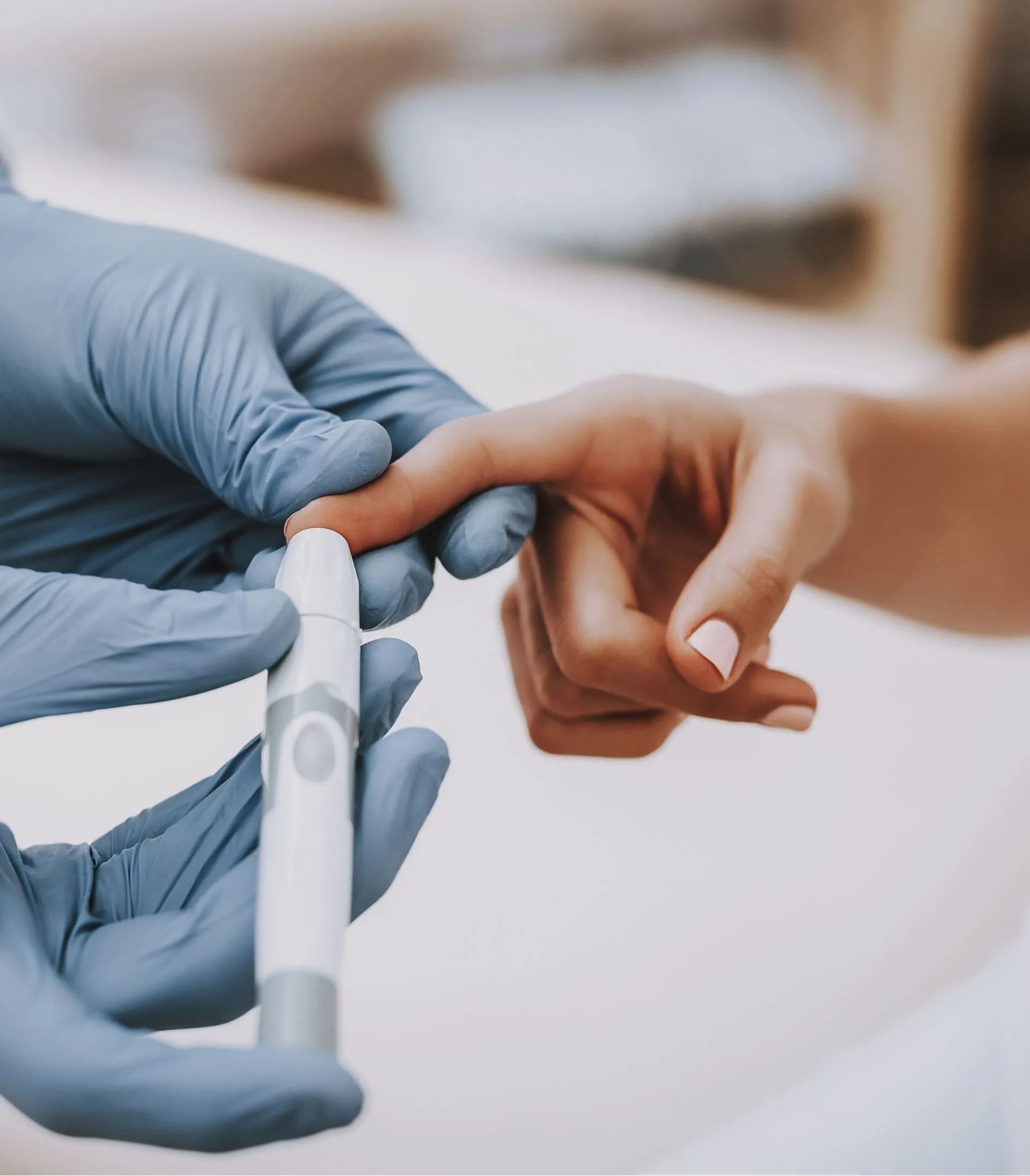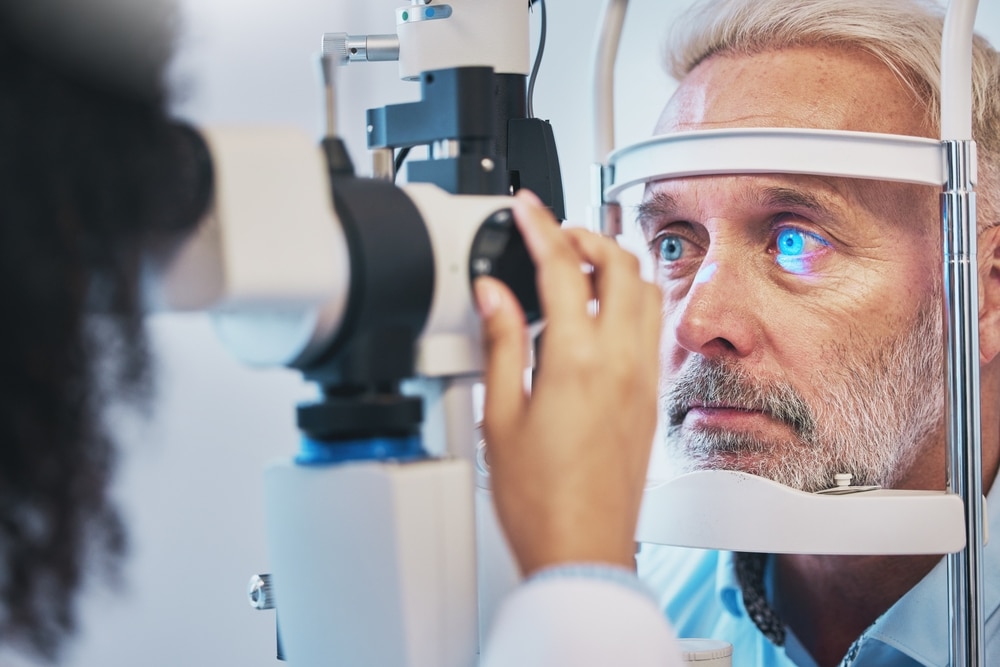Using The Most Innovative Techniques and Technologies
Diabetes Does Affect Your Eyes
Diabetic eye disease is a leading cause of blindness. If you have diabetes, you should have diabetic eye exams at least once a year. Kenneth Weinlander, MD, a board-certified and fellowship-trained ophthalmologist, offers comprehensive diabetic eye exams, among many other eye services, at Milwaukee Eye Surgeons in Milwaukee, WI. Call the practice or book your appointment online today.

Diabetes Eye Q & A

What Happens If Diabetic Eye Disease Is Not Treated?
If diabetic eye disease, such as diabetic retinopathy or macular edema, it can potentially lead to severe complications and even irreversible damage to the eyes.
Below is a list of potential complications that can occur if diabetic eye disease is not treated:
- Vision loss – The most common complication of untreated diabetic eye disease is vision loss. This is usually mild but can worsen without the proper treatment. If it becomes severe enough, untreated diabetic eye disease can cause blindness.
- Retinal detachment – In advanced stages of diabetic retinopathy, scar tissue can start to form on the blood vessels. This increases the risk of retinal detachment. Retinal detachment is a serious medical condition where the retina pulls away from the eye. This causes the eye to lose nutrients and oxygen, which will eventually cause vision loss.
- Neovascular glaucoma – Neovascular glaucoma is a severe form of glaucoma that is characterized by abnormal blood vessel growth and the angle of the eye being closed off. This is typically caused by a lack of blood flow to the retina. Symptoms of neovascular glaucoma include severe eye pain, seeing halos around lights, redness of the eye, headaches, and nausea and vomiting.
- Blindness – If diabetic eye disease is not treated properly and is allowed to progress to advanced stages, it can lead to blindness. In fact, diabetic retinopathy is one of the leading causes of blindness.
It is crucial for any patient who has diabetes to schedule regular eye exams as well as manage their blood sugar, blood pressure, and cholesterol levels. Keeping these in check can help patients reduce the risk of diabetic eye disease and prevent its progression if it occurs. Early detection and treatment are critical to preserving a patient’s eye health and preventing the onset of complications.
How Often Should Diabetic Patients Schedule Eye Exams?
Patients with diabetes should schedule an eye exam at least once a year, even if they do not show signs of diabetic eye disease. For those who have pre-existing eye conditions, you may have to schedule multiple exams every year.
How is Diabetic Eye Disease Treated?
Diabetic eye disease can be treated in a variety of ways. However, the type of treatment needed depends on the condition and how severe it is. Some patients may require medication, while others might need surgery, such as a vitrectomy. You will need to consult with Dr. Weinlander so he can construct a proper treatment plan specific to your needs.

Can Diabetic Eye Disease Affect Both Eyes?
Yes, diabetic eye disease can affect both eyes. This is why it is critical to schedule routine eye exams, as diabetic eye conditions often affect both eyes.
What Lifestyle Changes Can Help Prevent the Onset of Diabetic Eye Disease?
There are various lifestyle changes that can help prevent the onset of diabetic eye disease.
These changes include the following:
- Properly manage your blood sugar levels
- Maintain a healthy weight
- Eat a nutritional, well-balanced diet
- Refraining from smoking
- Getting enough physical activity
Get The Best Eyecare Now
See For Yourself
Book An Appointment Today
Don’t Let Finances Stop You

We Offer Financing Services
We know that sometime procedures can feel expensive or unattainable due to limited financing, but that isn’t the case.
There are many services out there and some insurance providers that may help out with the cost of eye care.

Financing Plans for Procedures and Treatments with Care Credit
You can apply for a variety of financing plans through CareCredit using the online credit application. During your consultation, we can discuss the details of your financing options.
Why Choose Milwaukee Eye Surgeons
Milwaukee Eye Surgeons is a leading ophthalmology and corneal surgery practice renowned for exceptional eye care and advanced surgical treatments. Led by Dr. Kenneth Weinlander, a board-certified ophthalmologist and fellowship-trained corneal surgeon, the practice offers a wide range of services from general eye care to specialized surgeries.
Dr. Weinlander is one of the few physicians in the country offering corneal tattooing, an innovative procedure to treat intractable glare caused by iris loss. With expertise in diabetic eye exams and other essential vision care services, Milwaukee Eye Surgeons is committed to delivering the highest personalized care to each patient.
Schedule Your Diabetic Eye Exam Today
Diabetic eye disease is a serious complication of diabetes requiring proactive management to protect your vision. Regular eye exams, diligent blood sugar control, and timely treatment are essential in preventing or slowing the progression of conditions like diabetic retinopathy, macular edema, and glaucoma.
By working with your doctors and staying on top of your eye health, you can take the necessary steps to preserve your vision and maintain a high quality of life. Don’t wait for symptoms to appear—schedule your diabetic eye exam today by calling us at (414) 377-5550.
